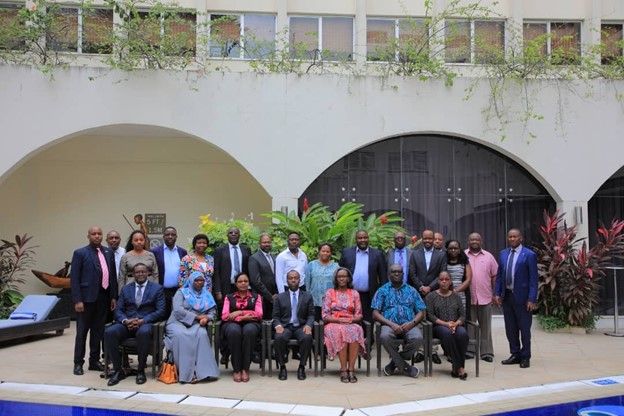Digitalisation is a driving force for enhancing the region's competitiveness and successful digital transformation skills for regional integration, trade, education, finance, banking, and health, among other sectors. The EAC aims to capitalise on digital innovations and create new digital services and an integrated digital market to improve areas including cross-border trade, e-Commerce, and the mobility of professions.
In June 2024, discussions of advancing Mutual Recognition Agreements (MRAs) and increasing cross-border mobility for professions, specifically engineers, were held at the 19th Sectoral Council on Education, Science, Technology, Culture, and Sports (SCTSTCS).
The meeting recognised the efforts undertaken by the EAC Secretariat, in partnership with GIZ, through the Digitalisation for East African Trade and Integration (DIGEAT) project, in co-creating innovative approaches to improve digital services that will remove obstacles preventing professionals' ability to provide their services at regional level.
Building up on the existing interventions, the Council directed the Secretariat to: a) facilitate interactions through a multi-stakeholder forum to further address issues pertaining to the to the harmonisation of national regulatory frameworks; and b) develop a regional digital platform in collaboration with the competent authorities of the engineering profession from the EAC Partner States.
This digital platform, which will be designed with the support of the joint EAC and GIZ DIGEAT programme, will serve as a tool to revolutionise the existing manual processes, promising a significant leap in efficiency and speed in the issuance of mutual recognition credentials for professional engineers. It stands as a model for other regulated professions, promising enhancements in trade in services, employability, and skills development, particularly for the youth.
By retaining expertise and knowledge within the region, this initiative is expected to reduce brain drain and support crucial infrastructure programmes. Furthermore, it will foster resilient and innovative approaches in the engineering sector and other climate-mitigating technologies, further contributing to the EAC's economic and social development.
These directives from the Council and the cooperation formed between the EAC Secretariat, the regulatory bodies for engineers from the region, and other partners are the epitome of collaborative efforts towards substantially advancing the integration agenda.
Find more information on EAC-GIZ support to cross-border mobility of engineers here.
